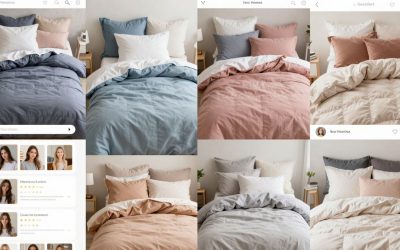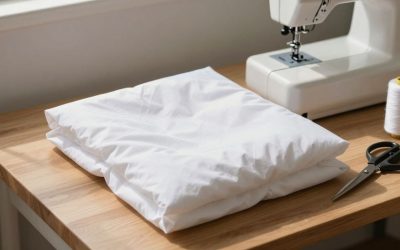Are you trying to decide which type of mask is best for you, a nasal pillow mask or a full face mask? If so, you are not alone. Many CPAP (continuous positive airway pressure) users find themselves in this situation, as the two types of masks offer different advantages and disadvantages. In this article, we will discuss the advantages and disadvantages of both types of masks, as well as some other factors to consider when selecting the best mask for you. So, let’s dive in and take a look at how nasal pillow masks and full face masks compare.
Overview of Nasal Pillow and Full Face Masks
Nasal pillow masks are small, triangular shaped masks that fit snugly inside the nostrils. They are made of either silicone or a soft plastic material and attach to the head with a loop-like strap or head gear. Unlike full face masks, these masks do not cover the entire face, but instead just seal around the nostrils. The main advantage of this type of mask is that it is lightweight and less invasive.
Meanwhile, full face masks cover both the nose and mouth and fit securely to the face using either headgear or straps. These masks usually provide better protection for those who suffer from mouth breathing, as the entire face is sealed off for air to pass through. Full face masks can also be adjustable so that users can customize the tension, angle, and size to their preference.
Full face masks are often recommended for those who suffer from sleep apnea, as they provide a more secure seal and can help to reduce the risk of air leakage. Additionally, they are often more comfortable for those who sleep on their side, as the mask will not move or shift during the night.
Benefits of Nasal Pillow Masks
The main benefit of nasal pillow masks is their minimal contact with the face. This reduction in contact helps provide greater comfort than full face masks, as users may feel less claustrophobic and not have to worry about any skin irritation in the area. Nasal pillow masks are also very lightweight and can be more easily adjusted than full face masks. Additionally, they deliver more pressure than traditional CPAP masks while remaining less bulky.
Nasal pillow masks are also designed to be quieter than full face masks, making them ideal for those who are sensitive to noise. The design of the mask also helps to reduce air leakage, which can be a common issue with full face masks. Furthermore, the design of the nasal pillow masks allows for a greater range of movement, making them ideal for those who move around a lot while sleeping.
Nasal pillow masks are also easy to clean and maintain, as they have fewer parts than full face masks. This makes them ideal for those who want a low-maintenance CPAP mask. Additionally, they are often more affordable than full face masks, making them a great option for those on a budget.
Benefits of Full Face Masks
The primary benefit of full face masks is their coverage over both the nose and mouth. While other types of masks might not fully support those who experience mouth breathing or may need to move around more during the night, full face masks protect the entire face for complete coverage. Additionally, full face masks are less prone to air leakage than nasal pillow masks and don’t require secure straps or headgear.
Full face masks are also beneficial for those who suffer from allergies or sinus issues. The full coverage of the mask helps to keep allergens and irritants out of the airways, allowing for a more comfortable sleep. Additionally, the full face mask can help to reduce the amount of noise that is heard during the night, as the mask helps to muffle sound.
Full face masks are also beneficial for those who suffer from sleep apnea. The full coverage of the mask helps to ensure that the airways remain open throughout the night, allowing for a more restful sleep. Additionally, the full face mask helps to reduce the amount of air that is lost during the night, which can help to reduce the symptoms of sleep apnea.
Comfort Considerations for Nasal Pillow and Full Face Masks
When deciding between a nasal pillow mask and a full face mask, comfort is an important consideration. Although both types of masks provide adequate coverage, some users may feel more comfortable with one type over the other. Users should thoroughly check both types of masks to ensure an optimal fit in order to maximize comfort.
Nasal pillow masks are designed to fit snugly around the nose and provide a secure seal. They are lightweight and less intrusive than full face masks, making them a popular choice for those who prefer a more minimalistic design. However, some users may find that the nasal pillow masks can be uncomfortable or cause irritation due to the tight fit.
Full face masks provide a more comprehensive coverage and are designed to fit securely over the nose and mouth. They are typically more comfortable than nasal pillow masks, as they provide a larger surface area for the user to rest their face against. However, some users may find that the full face masks can be bulky and intrusive, making them less desirable.
Ventilation Considerations for Nasal Pillow and Full Face Masks
Ventilation is a key factor in deciding between a nasal pillow mask and a full face mask. Nasal pillow masks may be slightly more prone to air leakage than full face masks, as there is less surface area for securing the mask. On the other hand, full face masks can be adjusted more easily, providing greater ventilation. Additionally, users may find that full face masks are less susceptible to condensation.
Nasal pillow masks are typically lighter and more comfortable than full face masks, making them a good choice for those who are sensitive to the feeling of a mask on their face. Additionally, nasal pillow masks are less likely to cause skin irritation, as they do not cover the entire face. However, they may not be suitable for those who need a higher level of ventilation.
Full face masks are a good choice for those who need a higher level of ventilation, as they can be adjusted more easily to provide greater airflow. Additionally, they are less likely to cause condensation, as they cover the entire face. However, they may be heavier and less comfortable than nasal pillow masks, and may cause skin irritation due to the larger surface area.
Cost Considerations for Nasal Pillow and Full Face Masks
Cost is another main factor when considering a nasal pillow mask or a full face mask. Nasal pillow masks tend to be cheaper than full face masks as they have fewer components. However, users may find that these masks require more adjustments during use and are also less durable than their full face counterparts. On the other hand, full face masks tend to be pricier but provide better security and more adjustable features.
Tips for Choosing the Right Mask for You
In general, selecting the right mask for you comes down to personal preference. Some important things to keep in mind are comfort, ventilation, cost, and usage scenarios. For example, if you plan on participating in strenuous activities while wearing your CPAP mask, such as running or biking, it may be best to opt for a nasal pillow mask over a full face mask. On the other hand, if you’re mainly using your CPAP for sleeping and don’t require any extra movement, then a full face mask might be best.
Questions to Ask Your Doctor Before You Choose a Mask
Before selecting any CPAP mask, you should consult with your doctor or sleep specialist. Your doctor can provide additional insight into which type of mask would be most suitable for your particular needs. He or she can also evaluate other aspects such as fit, comfort and sealing to ensure that you make an informed decision when selecting your CPAP mask.
In conclusion, selecting the right CPAP mask for you can depend on several factors such as affordability, comfort and ventilation needs. Nasal pillow masks are lightweight and more adjustable but may be more prone to leakage while full face masks provide better coverage while being more bulky and expensive. Before making any final decision on which mask is right for you, you should consult your doctor or sleep specialist to get additional insight into the available options.



